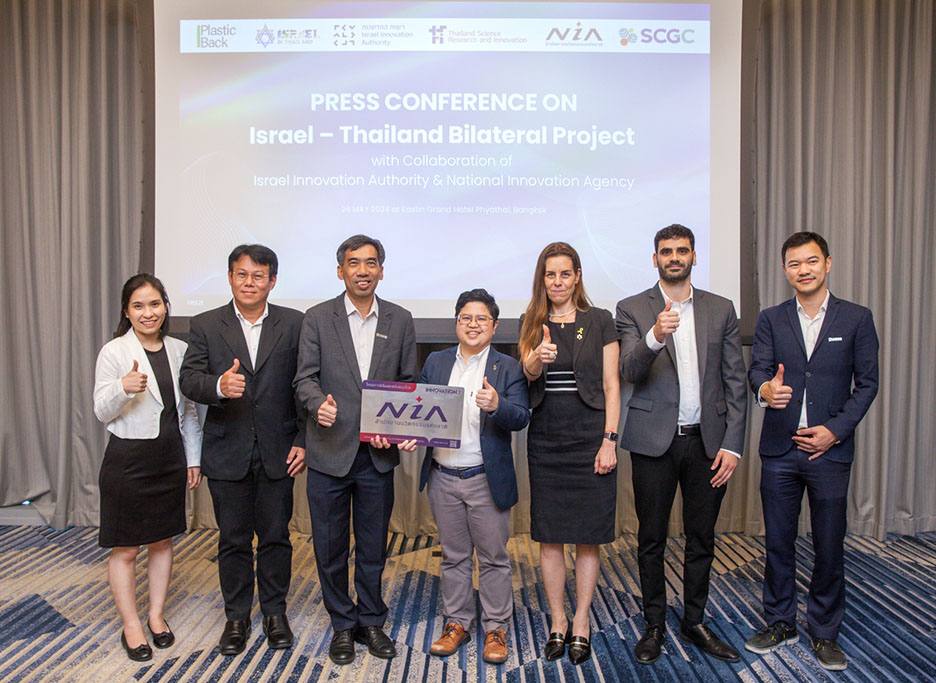BANGKOK – The Israel Innovation Authority (IIA) in collaboration with The National Innovation Agency (NIA), under the Ministry of Higher Education, Science, Research, and Innovation, showcased an innovative process for recycling PVC-contaminated plastic waste using superoxide processes to produce naphtha oil for the chemical industry.
This is the first use case of this technology in Thailand, a result of the cooperation between SCG Chemicals from Thailand and Plastic Back from Israel.
The innovation aims to address the challenge of disposing of PVC-contaminated plastic waste, by producing naphtha oil that can be used in factories, replacing the high-cost fossil-based naphtha.

Ms. Orna Sagiv, Ambassador of Israel to Thailand, delivered the opening remarks at the press conference on the Israel-Thailand Bilateral Project on May 24, 2024. She expressed her happiness to hear that the introduction initiated by the Economic and Trade Mission, Embassy of Israel in Thailand, has led to a successful cooperation between SCG Chemicals and the Israeli start-up Plastic Back.
“I am sure that this is the first of many successful cooperation. I truly believe in the combination of small Israeli Start-Ups and big Thai Power-Houses, benefiting the peoples of our two countries,” she said.
Dr. Krithpaka Boonfueng, Executive Director of NIA, stated thay NIA is committed to promote the development of innovations that create economic and social value. Recognizing the importance of building international collaborative networks.
NIA partnered with the Israel Innovation Authority (IIA) to launch the ‘Bilateral Programs for Parallel Support’ to enhance the capabilities of innovative business entrepreneurs in sectors of mutual interest between the two countries.

This plastic waste recycling innovation project between SCG Chemicals and Plastic Back is the first success since the signing of Memorandum of Understanding (MoU) in innovation cooperation in 2018.
Dr. Suracha Udomsak, Chief Innovation Officer at SCGC, explained that the recycling technology developed by Plastic Back can transform PVC-contaminated plastic waste, traditionally challenging to recycle, into high-value products with an exceptional recycling rate nearing 100%.
This technology can be integrated either as independent units within factories or deployed regionally across diverse provinces. SCGC plans to trial this innovative technology with plastic waste in Thailand, aiming to ascertain the optimal conditions for producing hydrocarbon feedstock used in petrochemicals.

“This collaboration will advance SCGC’s circular economy concepts according to our business concepts. We aim to develop green solutions based on the Low Waste, Low Carbon approach to tangibly achieve sustainability goals and move towards a low-carbon society,”
Mr. Tal Binder Cohen, Chief Executive Officer at Plastic Back, added, “We have identified the PVC chemical recycling segment as a big opportunity. The collaborative efforts with SCGC will allow us to close the loop on the upcycling of difficult-to-treat PVC waste streams. We look forward to strengthening our collaboration with SCGC as we scale up our process and partnership. The bi-lateral R&D framework, supported by the NIA and IIA have allowed us to bring together innovation, industry expertise, and a fertile ground for collaboration.”
